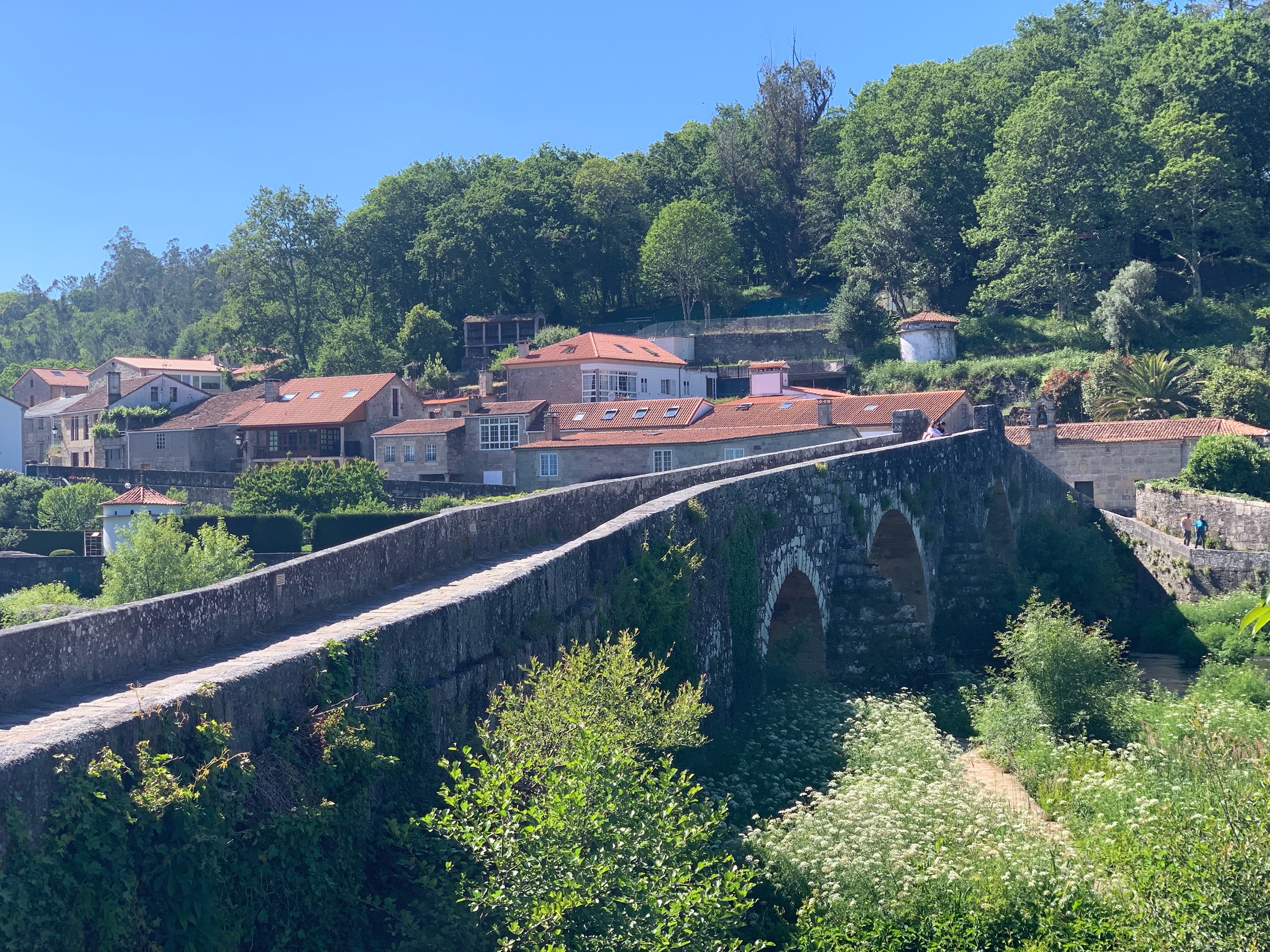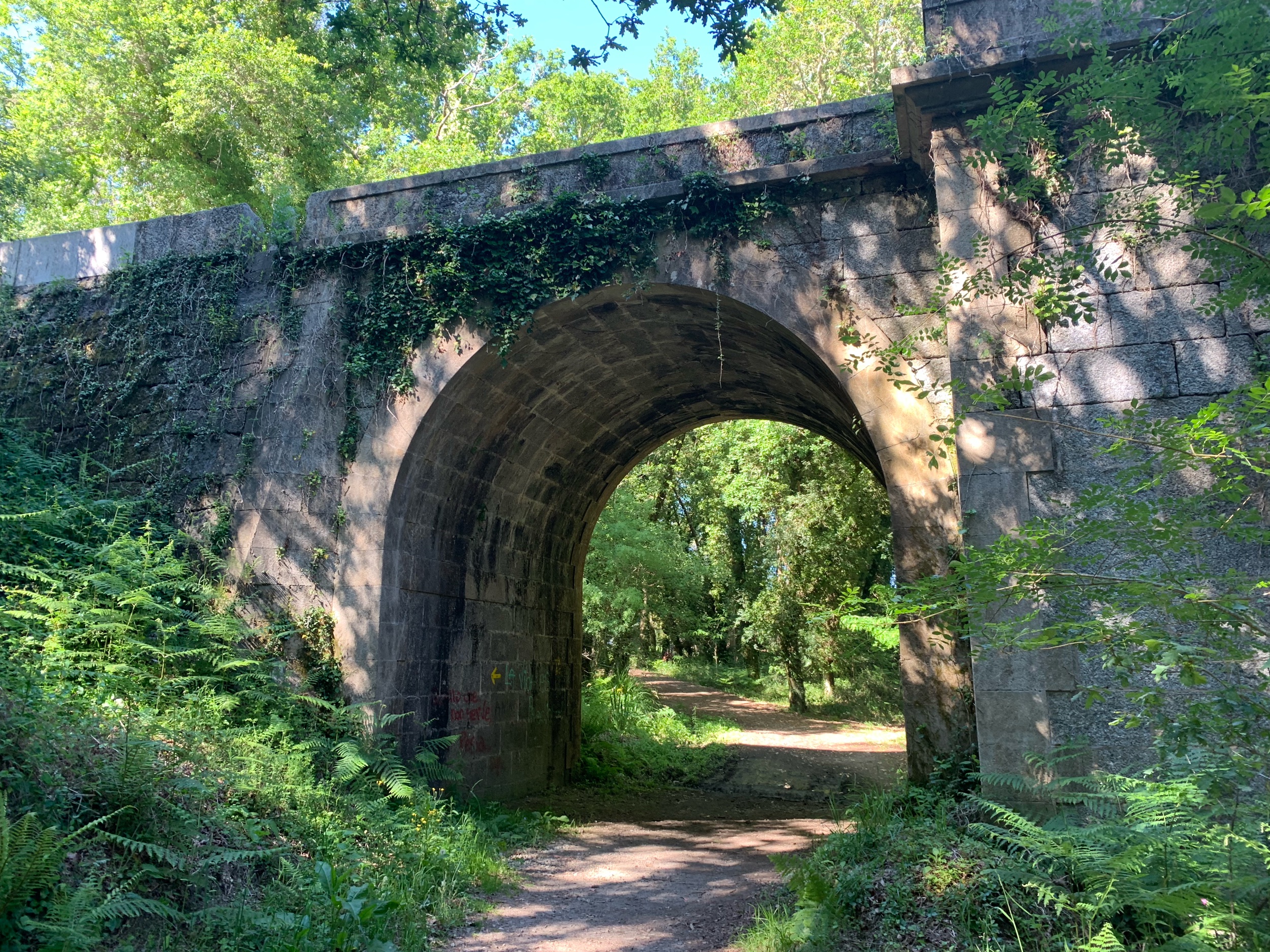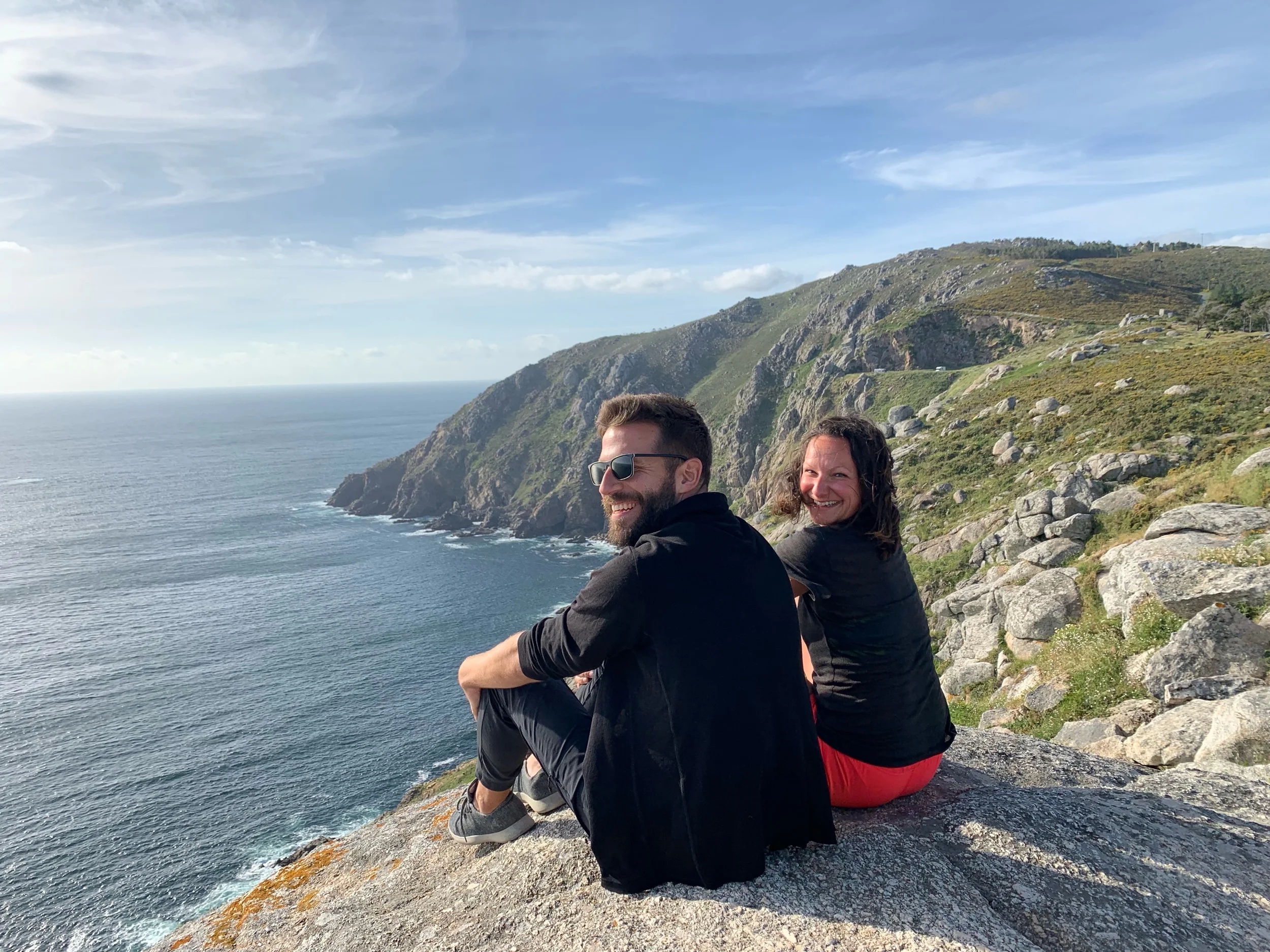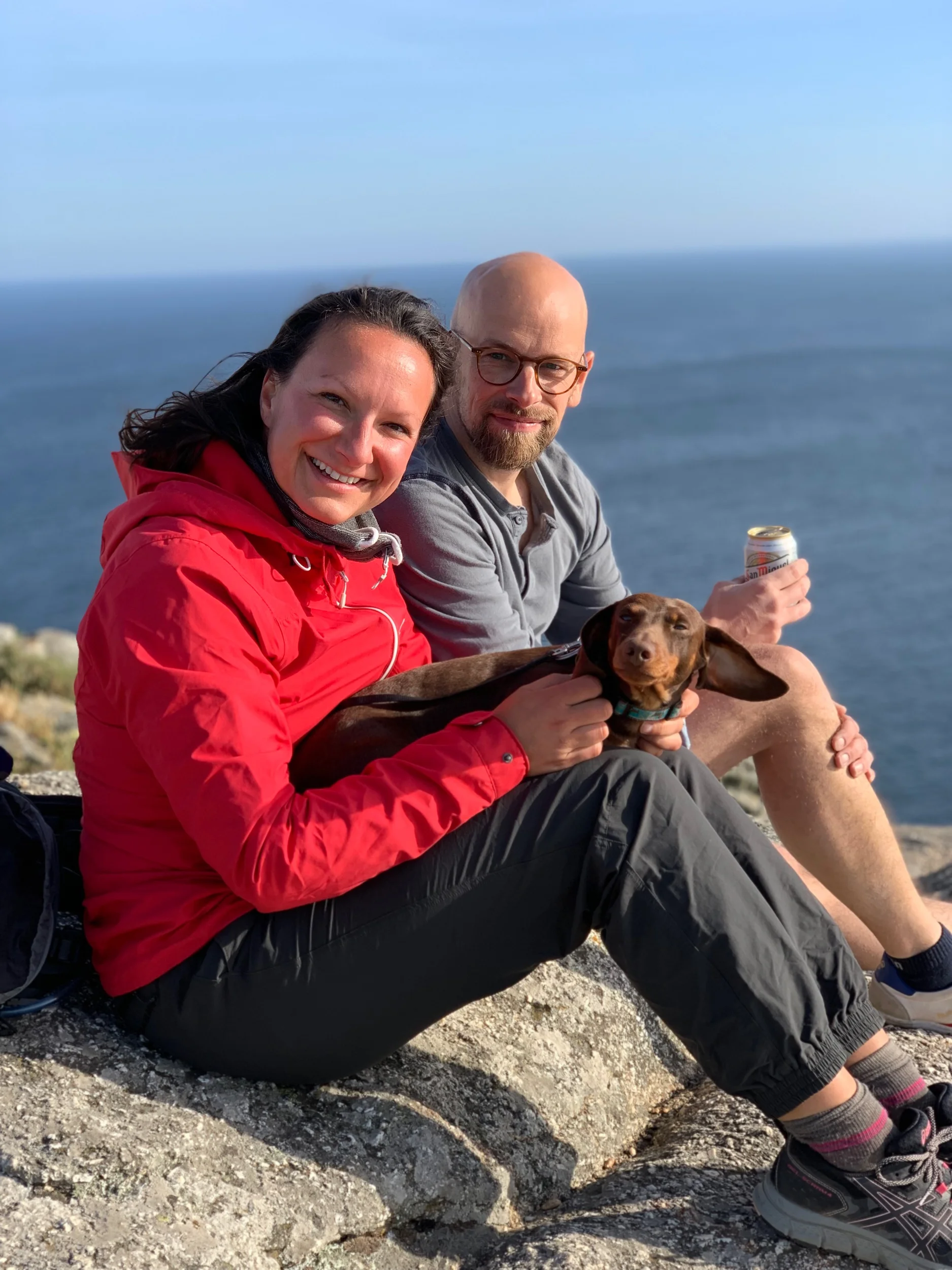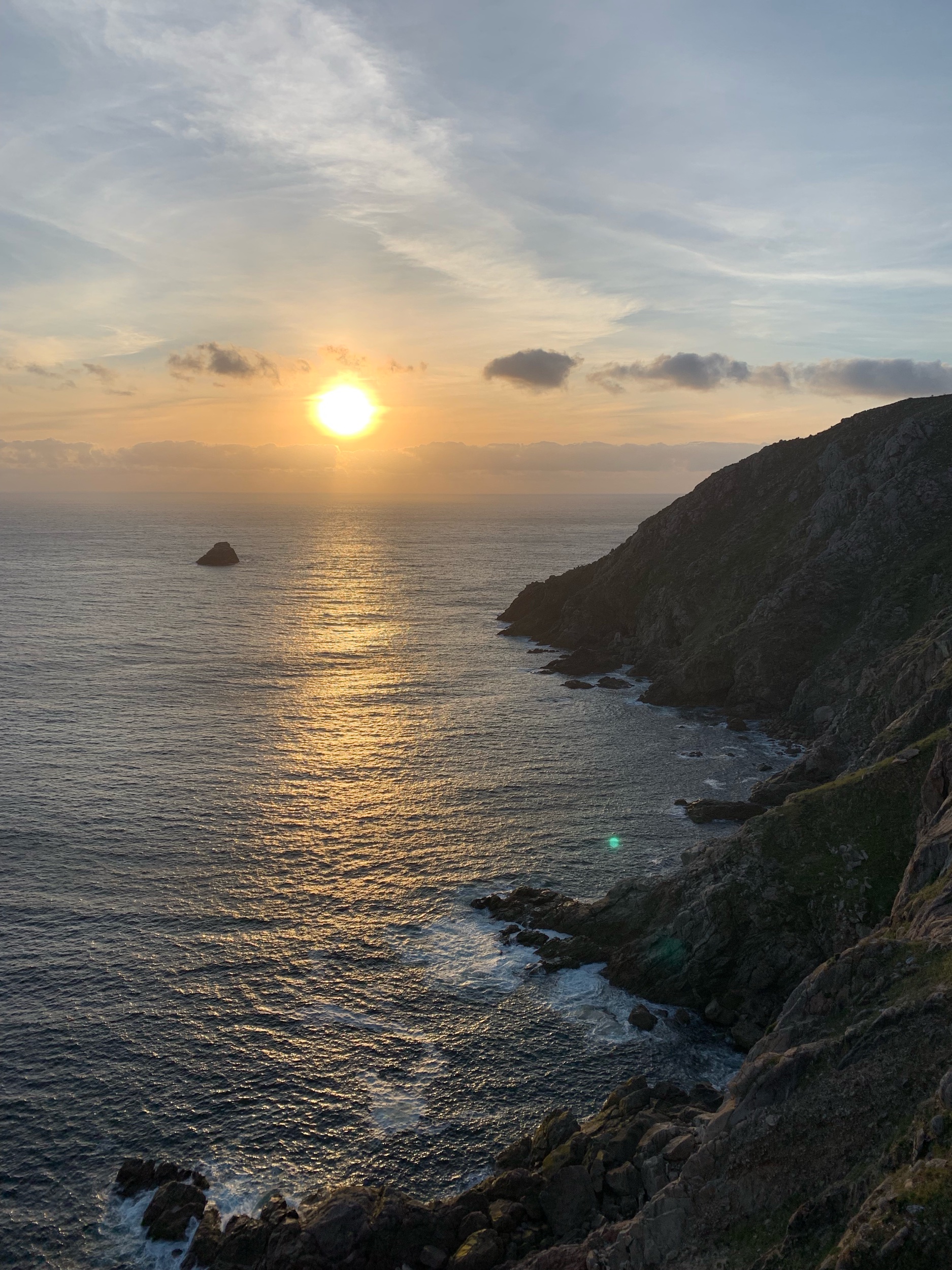The End of the World
The town of Fisterra (Finisterre in latin) translates to “The End of the World.” For centuries, before the Americas were “discovered,” people thought this was as far as you could go before you were getting into fall-off-the-flat-earth territory. It also has the nickname of “Costa da Morte” or “Coast of Death” because so many ships left Fisterra never to return.
The extension route to Fisterra adds nearly 90 km to the Camino, but those who make it are rewarded with an incredible coastal view enjoyed for hundreds of years by pilgrims of Christian and Pagan faiths.
Archaeologists have determined that Celtic pilgrims have been following the route to Fisterra since at least 1000 BC, calling it “Via Finisterre”
Santiago to Negreira (20.5 km)
I got a late start on the first day of my walk to Fisterra, but mercifully it was a relatively short one. The last leg of my pilgrimage to St. Madonna was still leaving me a bit woozy. I packed up my stuff, mailed my Compostela, and began the walk to Fisterra. There were very few other pilgrims on the path, which was partially due to the low percentage of pilgrims who keep walking and partially due to the fact that I got such a late start. I could see the Santiago skyline and the Cathedral as I exited the city.
I stopped at a restaurant in the mid-afternoon for a coffee and a sandwich. There I picked up a brand new “credencial do peregrine” specifically for pilgrims going to Fisterra and/or Muxia (Another extension that I will not be walking). I walked through a small town called Ponte Maceira, which had a really cool medieval bridge over the river Timbre.
As I closed in on my first stop of Negreira, there was a bicycle race going on, which made walking fairly hazardous. Police were escorting the bikes to make sure they were safe and every time I crossed the street, I had to make sure there weren’t a trio of bikers about to sideline me.
The cheaper municipal albergue in Negreira had long been sold-out, so I found another called Albergue Alecrín. It was my first time in many days where I hadn’t stayed with anyone from my Camino Family. As I began to put on the disposable sheets I was given by the hospitaleros, I met the pilgrim sleeping in the bunk below me, a German woman named Martina. Martina had just finished the Portugese Way and was beginning her walk to Muxia/Fisterra. Martina and I instantly bonded, she had an inquisitive nature and advised that I visit the Azores during my travels (I absolutely will).
Negreira to Olveiroa (33 km)
Everyone woke up super early at this albergue for some reason but it worked out well for me as there was a long day ahead. There were different route options this day for a more pleasant and scenic walk, which I made sure to take. I was pleasantly surprised to hear Lizzo on NPR’s Fresh Air but cringed a couple times at some of Terry’s questions. I’m not sure how I would have gotten through the past several hundred kilometers without my podcasts, but people did for centuries.
During the walk I ran into Martina and she shared some of her own history. She took a maternal interest in my life and my trip. Martina reassured me that my mom was here with me and so proud of me. She said it with a confidence and force of belief that I found myself believing her in spite of the fact that she never knew my mom. We parted ways but I saw her later at the municipal albergue in Olveiroa. When people I meet briefly have a big impact on me, I try and remember that none of us fully know the impact we may have on the people we meet, even briefly.
Martina and me
Olveiroa to Faro de Fisterra (34 km)
In spite of my emotional arrival at Santiago, my actual final full day of walking was the walk to Fisterra. The day started off pretty wet and rainy but there were beautiful views descending into a charming seaside city called Corcubión. I stopped for a squid bocadillo, which consisted of calamari, mushrooms, and caramelized onions inside of a baguette. It was pretty tasty as far as seafood goes, but I would still not pick it over say, a burger.
The arrival into Fisterra was exciting but it wasn’t exactly the end. I still needed to go to the lighthouse, which is the official end. I was in no rush because I wanted to watch the sunset. I rested a bit in Fisterra, picked up my certificate signifying I completed the pilgrimage, and walked with Anja up to the lighthouse.
Walking to the end with Anja was really special because we both started on the same day from Irun, a city that was nearly 900km from Fisterra. We took breaks at different places and weren’t together the entire time, but here we were, 41 days later walking to the very end. Anja was meeting her boyfriend Sebastian and joining him in the camper van in which they had been motoring around Europe for the past several months.
Sebastian was waiting for us with their dachshund whose name I forgot because it was very German-sounding. Even more importantly, he was waiting there for us with beers. We sat on a rock overlooking the coast and sat together silently, taking everything in. Looking out at the horizon, I tried to imagine what it must have been like for the people that for centuries thought they were looking at the end of the world.
I needed some time alone, as I brought a tiny baggy with some of Mom’s ashes that I intended to spread at Fisterra. I put on the Spotify playlist with the songs my mom requested for her memorial service and climbed down to a boulder that, had my dad been watching, would have given him a second heart attack.
I cried a lot thinking about Mom and watched the sun descend in the sky. I took out the headphones and listened to the sound of the wind and the waves thrashing against the rocks. It’s strange that something so violent is also so calming. I propped up my phone and recorded a video of myself spreading some ashes for my siblings so that they could be there with me to experience it. It was truly one of the most beautiful views I’d ever seen and Mom would have loved it.
Shortly after I spread the ashes, I noticed dozens of goats walking above me, which meant I was trapped on my giant boulder. I laughed at the situation, never feeling like I was in any real danger. A man started shouting and clapping from a distance who appeared to be looking straight at me. I squinted. He wasn’t with the police or any kind of park service. The goats all turned around and walked en masse back in the direction from which they came.
Only one member of my Camino family was missing at Fisterra, and that was Henric. Anja walked, while Andrés and Kathleen took a bus. We all shivered together, basking in the purple glow of the sunset until it was completely dark. Anja graciously drove us back to Fisterra in her camper van, passing scores of shivering pilgrims fumbling through the dark. I hopped out of the camper van and grabbed a late dinner before going to bed.



